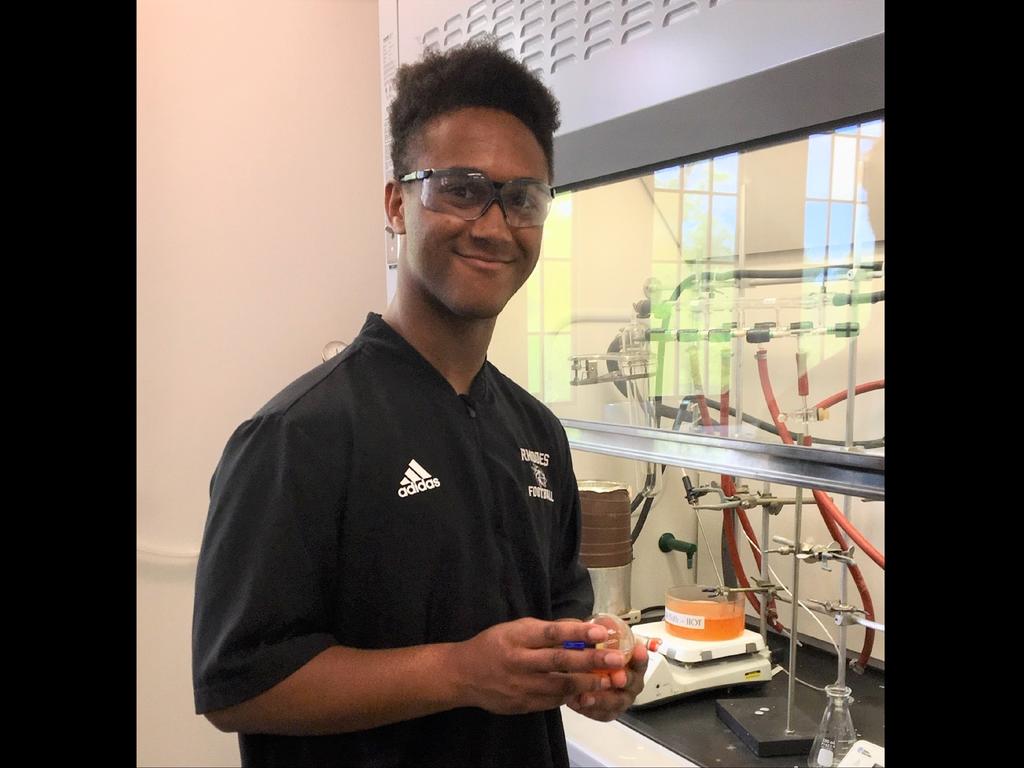Rhodes sophomore Scott Wicker and chemistry professor Dr. William Eckenhoff have been investigating artificial photosynthesis in the production of hydrogen gas, which is a promising alternative fuel that could one day replace gasoline as a transportation fuel.
Wicker, who is from Zachary, LA, joined Eckenhoff’s lab as a first-year student, and he will be pursuing a major in chemistry and a minor in mathematics at Rhodes.
“Working in Dr. Eckenhoff’s lab allows me to cultivate and practice key skills I need to be successful in graduate school and possibly my career,” says Wicker. “Being able to have such a head start is a phenomenal benefit in itself.”
Hydrogen does not occur in its pure form in large quantities, but it is available in compounds such as water and alcohols; the challenge is finding the most efficient methods of extracting it. Researchers such as Wicker and Eckenhoff are concentrating on hydrogen production via artificial photosynthesis, a process that mimics the natural way that green plants use sunlight to divide water molecules. The artificial process requires a catalyst, such as certain metals, to initiate a chemical reaction that produces the hydrogen.
More specifically, Wicker and Eckenhoff have been investigating the design, synthesis, and testing of nickel and cobalt complexes as catalysts for hydrogen production in artificial photosynthesis. Wicker spent eight weeks working with Eckenhoff to optimize several new hydrogen production procedures. Eckenhoff hopes to publish results in the coming months.
“Scott made fantastic progress on the project this past summer,” says Eckenhoff. “He is off to a great start with his career at Rhodes College.”
Wicker also attended the prestigious MIT ACCESS program in September, held on the Cambridge, MA, campus. The weekend-long program offers participants an overview of graduate education in chemistry and chemical engineering through seminars, talks by MIT faculty, and interactive sessions. Admission into the ACCESS program is based on a student’s essay, an online application, and letters of recommendation from professors regarding their work as part of the research team.
In addition, Wicker is interested in the pre-engineering certificate offered by Rhodes. The certificate is available to both chemistry and physics majors.
“Basically, these certificates require are a number of courses beyond a student’s major requirements to set them up for graduate school admission and success,” explains Eckenhoff. In addition, students must complete one approved experiential component such as summer research or an engineering-related internship.
“This is a new program designed to encourage students to come to Rhodes for both a liberal arts education and excellent preparation for engineering graduate school,” says Eckenhoff.
